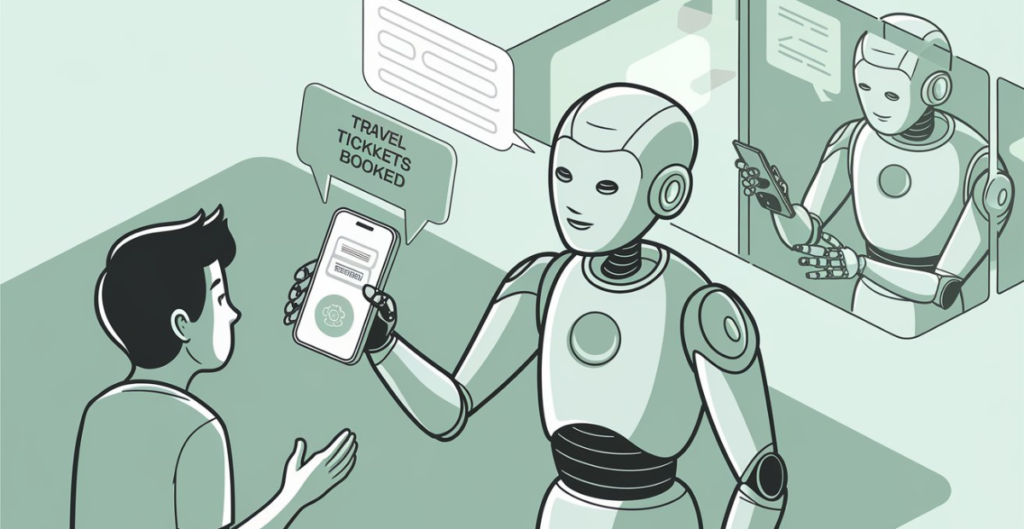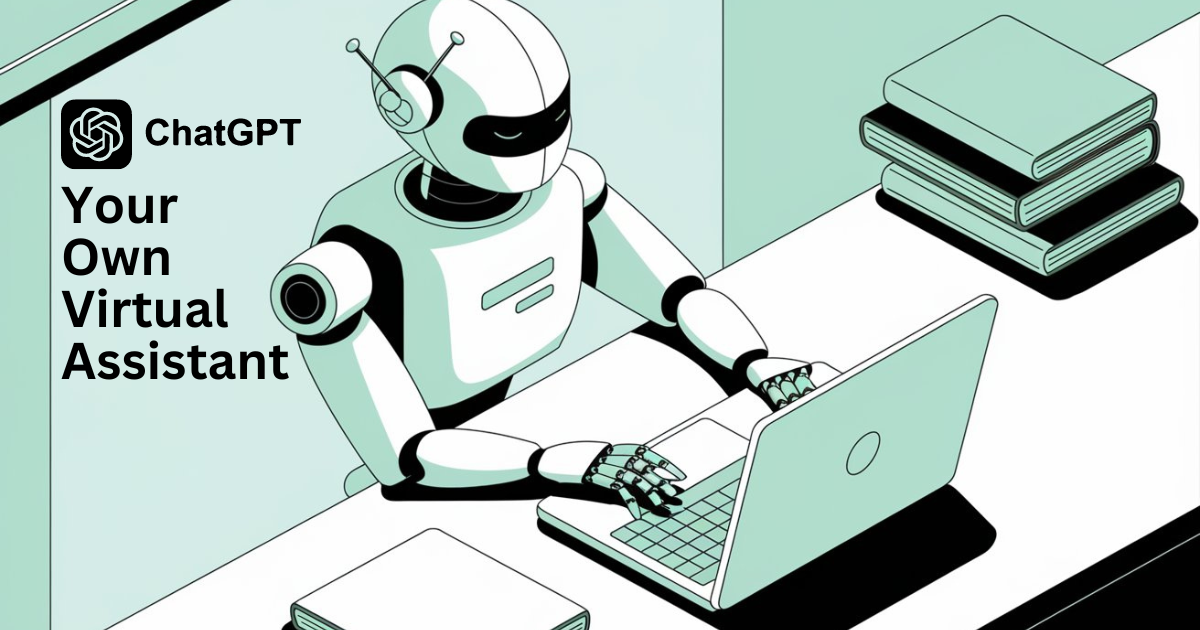Introduction – Then And Now
In the early days of computing and the internet, these technologies were primarily reserved for corporate environments and office sectors. Large, expensive systems were used for business operations, leaving little room for personal or household use.
However, as technology advanced and became more accessible, computers and the internet found their way into everyday homes, revolutionizing how we live, work, and communicate.
Today, in an increasingly fast-paced world, adopting new technologies like AI and chatbots has never been more crucial. As innovation continues accelerating, staying up-to-date with tools like ChatGPT is essential for effective navigation in this digital era.
With AI-powered tools like ChatGPT leading the charge, professionals across industries are embracing chatbots for their ability to streamline workflows, enhance productivity, and provide real-time problem-solving capabilities.
As a professional, I personally use chatbots on a daily basis now. I use a number of chatbots which mainly include ChatGPT from OpenAI, Copilot from Microsoft and Gemini from Google. Whether it’s to Improve my writing skills, learn new vocabulary and sometimes ask jokes to light up the mood.
As the world shifts towards automation, learning how to effectively utilize these tools is no longer just a luxury—it’s becoming a necessity. In this blog, we’ll explore why ChatGPT is a valuable asset for IT professionals and also the daily lives of users and how mastering chatbot technology can help you stay competitive in the ever-changing tech world.
Let’s discuss how ChatGPT can be a valuable asset for IT professionals.
Chatbots For IT Professionals
1. Boosting Productivity and Efficiency
Imagine an IT professional managing network security for a large company. They spend hours sifting through logs and error reports to identify potential security breaches.
By using ChatGPT, they can automate the process of log analysis. ChatGPT can quickly scan large sets of data, flag potential issues, and even suggest solutions, saving the professional several hours a week that can be redirected towards more critical security measures.
2. Enhancing Communication and Collaboration
In a team of IT professionals working remotely, collaboration on a complex software development project can be challenging. Let’s say one developer is in the U.S., while another team member, unfamiliar with a particular code structure, is based in Japan.
Instead of long, technical email threads, the team uses ChatGPT to explain coding conventions and create clear, concise summaries for each team member. This improves cross-border communication and speeds up the project without anyone feeling left out or confused.
3. Streamlining Learning and Upskilling
A junior IT professional wants to learn how to implement cloud-based solutions, but they are overwhelmed by the amount of information available online. Instead of browsing through multiple tutorials, they turn to ChatGPT for help.
By asking specific questions, such as “How do I set up a secure AWS instance?” or “What are best practices for cloud security?”, they receive step-by-step instructions and practical advice, allowing them to learn more efficiently and focus on what’s relevant.
4. Generating Code and Troubleshooting
An IT professional is tasked with creating a Python script to automate the backup of company data. Instead of writing the entire script from scratch, they use ChatGPT to generate a basic code structure.
After the initial draft, the professional notices an error in the script that causes the backup to fail. ChatGPT is then asked to review the code and identify the issue. Within moments, ChatGPT points out a syntax error and offers a solution, drastically speeding up the debugging process.
5. Adapting to Future Trends
A systems administrator in a growing tech company recognizes that AI-driven automation is the future of cybersecurity. By using ChatGPT, they can begin automating threat detection processes and monitoring for unusual network activity.
As AI continues to advance, they are well-positioned to integrate more sophisticated AI-driven tools in the future. Their early adoption of ChatGPT has given them an edge in staying ahead of industry trends, allowing the company to scale operations with minimal disruption.
Chatbots are not only valuable for IT professionals, but they can also be a powerful tool for individuals who aren’t very tech-savvy and want to enhance their productivity and simplify their daily tasks.
Let’s talk about how chatbots are making the lives of everyday users more productive and simplifying their daily and personal work.
Chatbots For Non-Professionals
1. Simplifying Daily Tasks
Many people struggle with managing their time or planning their day effectively. ChatGPT can act as a virtual assistant by helping users create a daily schedule, set reminders, or even draft to-do lists.
For example, a busy parent juggling work, household chores, and kids’ activities can ask ChatGPT to organize their tasks and remind them about important deadlines or appointments. This can help streamline their day and reduce stress.
2. Personal Finance Management
For someone unfamiliar with financial tools or budgeting apps, ChatGPT can provide straightforward advice on managing personal finances if they’re unsure how to budget their monthly expenses or need tips on saving.
they can ask ChatGPT questions like, “How can I save $500 a month?” or “What are some good budgeting strategies for beginners?” The AI can offer easy-to-follow guidance, helping users make smarter financial decisions without needing a finance background.
3. Learning New Skills or Hobbies
ChatGPT can be an excellent resource for people who want to explore new hobbies or learn basic skills. For example, someone who wants to start cooking but doesn’t know where to begin can ask ChatGPT for beginner recipes, cooking techniques, or meal-planning tips.
They can even get guidance on how to pick up a new hobby like painting, photography, or gardening, with step-by-step instructions and recommendations for getting started.
4. Writing Assistance
For someone who might not feel confident in their writing skills, whether it’s drafting an email, writing a cover letter, or even working on a personal blog post, ChatGPT can offer real-time assistance.
For instance, a person applying for a new job can use ChatGPT to help craft a polished cover letter or update their résumé, ensuring the language is professional and tailored to the job they’re applying for, without needing advanced writing skills.
5. Troubleshooting Everyday Tech Issues
We all have struggled with problems when it comes to troubleshooting basic technology issues like a slow computer, a Wi-Fi problem, or a malfunctioning smartphone app. ChatGPT can provide easy-to-understand instructions to help fix these issues.
For example, if someone’s Wi-Fi isn’t working, they can ask ChatGPT, “How do I reset my router?” or “Why is my internet slow?” and get step-by-step guidance to resolve the problem without needing to call tech support.
6. Planning Trips or Events

For people planning a vacation or hosting an event like a family gathering, ChatGPT can help with research and organization. If someone wants to plan a trip but doesn’t know where to start, they can ask ChatGPT for destination ideas, flight and hotel comparisons, or itineraries based on their preferences.
For event planning, ChatGPT can offer tips on budgeting, and guest list management, and even suggest themes or menus, making the entire process smoother.
7. Health and Wellness Guidance
ChatGPT can provide guidance on everyday health and wellness topics, such as home remedies, workout routines, or basic dietary advice. For example, if someone feels under the weather and doesn’t want to scour the internet for answers.
they can ask ChatGPT questions like, “What are some natural remedies for a sore throat?” or “What’s a simple beginner workout routine?” This can help users take better care of themselves without needing advanced knowledge.
Conclusion – What To Expect?
In conclusion, the advantages of chatbots, particularly for IT professionals and those looking to streamline their daily tasks, are undeniable.
From improving productivity to providing quick, accessible solutions, chatbots have proven to be a powerful tool in the digital landscape.
As we continue to integrate them into our lives, their potential only seems to grow. However, while the benefits are clear, there are also some challenges and limitations on the horizon.
Like heavy reliance on AI, lack of originality, ethical concerns, and potential job displacements.
Check out my in-depth blog post where I dive into the cons of chatbots and explore the risks that come with their rising influence here.
Have you ever used a chatbot? What do you think are the best features of modern chatbots? Share your thoughts in the comments below!





Pingback: The Convenience of AI Content Creation – The Hidden Drawbacks - It's All About Android